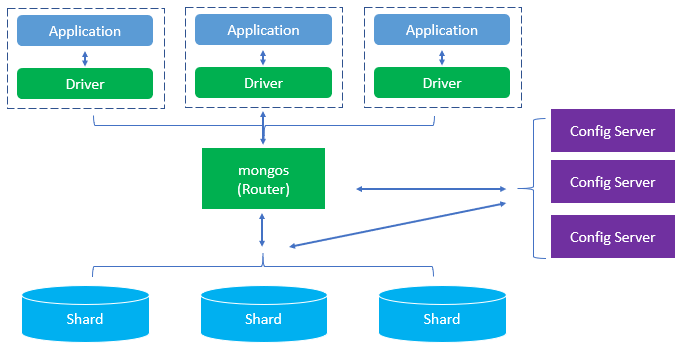MongoDB
What is MongoDB?
Definition:
MongoDB is a crossplatform, documentoriented NoSQL database management system designed for flexibility and scalability. It stores data in flexible, JSONlike BSON (Binary JSON) documents, making it suitable for various types of applications and data models. MongoDB is known for its ability to handle large volumes of unstructured or semistructured data and its support for horizontal scaling, making it a popular choice for modern, dynamic applications.
Analogy:
Think of MongoDB as a wellorganized filing cabinet. Instead of storing data in rigid, structured tables like a traditional relational database, MongoDB allows for the storage of diverse data types in flexible documents, similar to how files of different formats can be organized in a filing cabinet.
Further Description:
MongoDB’s key features include:
DocumentOriented: Data is stored in BSON documents, which can contain arrays and nested documents. This flexible schema allows for easy adaptation to evolving application requirements.
NoSQL Architecture: MongoDB is classified as a NoSQL database, meaning it does not rely on a traditional relational database management system (RDBMS) structure. This provides greater flexibility for handling diverse and evolving data types.
Scalability: MongoDB supports horizontal scaling through sharding, allowing the distribution of data across multiple servers. This enables the database to handle increasing amounts of data and traffic.
Indexing and Querying: MongoDB provides efficient indexing and querying capabilities, enabling fast retrieval of data. It supports various types of indexes to optimize query performance.
Aggregation Framework: MongoDB’s powerful aggregation framework allows for complex data transformations and analysis within the database itself, reducing the need for extensive data processing on the application side.
Geospatial Capabilities: MongoDB includes geospatial features, making it suitable for locationbased applications. It can store and query geospatial data, such as coordinates and shapes.
Why is MongoDB Important?
Flexibility: MongoDB’s flexible schema allows developers to work with evolving data models without the constraints of a fixed structure. This is particularly advantageous in agile development environments.
Scalability: MongoDB’s ability to scale horizontally ensures that it can handle growing amounts of data and traffic, making it suitable for largescale applications with changing demands.
Developer Productivity: MongoDB’s documentoriented model aligns well with modern programming practices, reducing the impedance mismatch between application code and database schema. This can enhance developer productivity.
Speed and Performance: MongoDB’s indexing and querying mechanisms contribute to fast data retrieval, supporting applications that require realtime access to information.
Examples and Usage:
Craigslist: Craigslist uses MongoDB to manage its vast amount of usergenerated data, providing a scalable and flexible solution for the diverse content on its platform.
The Weather Channel: MongoDB is utilized by The Weather Channel to store and manage geospatial data for its weatherrelated applications, supporting realtime updates and locationbased services.
Expedia: Expedia, the online travel company, employs MongoDB to handle its dynamic and evolving data requirements, providing a scalable and efficient database solution for its travel services.
Key Takeaways:
- MongoDB is a crossplatform, documentoriented NoSQL database management system designed for flexibility and scalability.
- It stores data in BSON documents, allowing for a flexible schema and easy adaptation to evolving application requirements.
- MongoDB supports horizontal scaling through sharding, enabling it to handle large volumes of data and traffic.
- Its features include efficient indexing, a powerful aggregation framework, and geospatial capabilities.
- MongoDB is valuable for its flexibility, scalability, support for modern programming practices, and fast data retrieval.
- Examples of organizations using MongoDB include Craigslist, The Weather Channel, and Expedia.
Table of Contents





